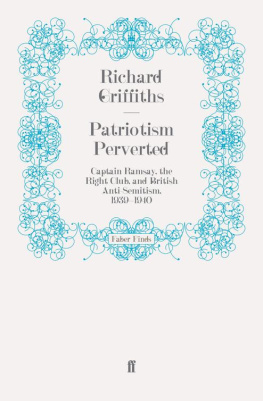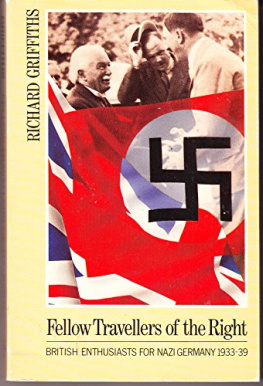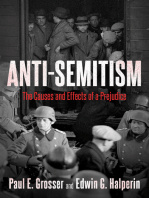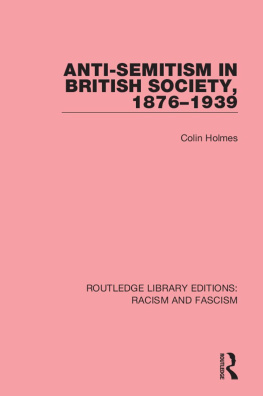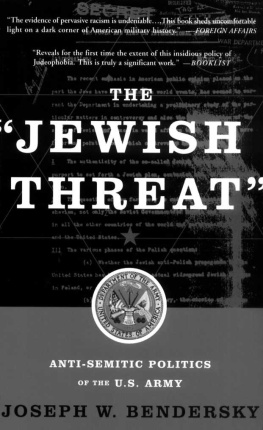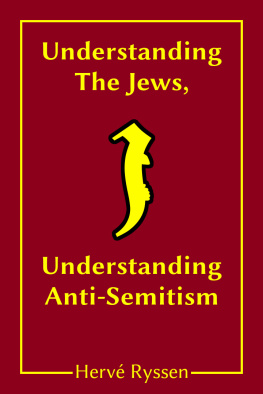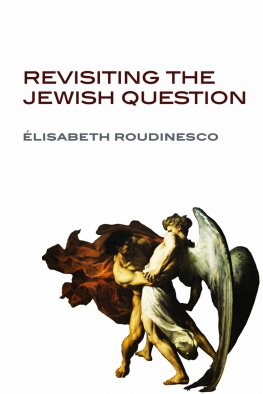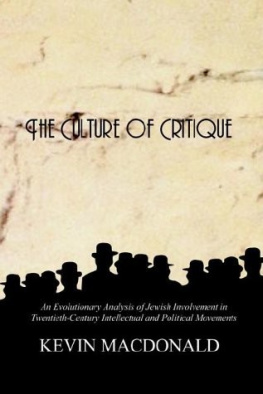The real reason, said Mosley, why the British Government had declared war on Germany () was because Britain was controlled by Jews and they desired to see the end of the present German Government so that they could resume their exploitation of the German people.
This statement of Mosleys, six months after the outbreak of war, was not made to some small private subversive meeting, nor to the kind of East End audience that is often associated with the activity of the British Union of Fascists in this period; it was made to a large and well-attended luncheon at the Criterion Restaurant on 1 March 1940, at which, in a predominantly upper-middle-class gathering, known extremists were to be found alongside many representatives of the great and the good. The extent of anti-war feeling in this period is often underestimated, as is the strength of the anti-Semitic contribution to that feeling. In order to understand these trends, one needs to look not only at the period of the phoney war but also at the last six months or so of the peace.
This book, which examines the phenomenon of anti-Semitism and the related phenomenon of pro-Nazism in Britain in this period, is, in one sense, a sequel to my Fellow Travellers of the Right (1980), which covered the years 19339; but it differs from it in two important respects. Firstly, Fellow Travellers was a study of public opinion in the Thirties, based almost entirely on printed sources in which people had expressed publicly their enthusiasm for the Nazi regime; this present study is of peoples behaviour, both public and private, in the immediate pre-war period; and when we reach the War itself, by the nature of things we will above all be concerned with private behaviour and activities, as revealed in Home Office reports, private diaries and correspondence, and other private documents relating to secretive movements. Secondly, in Fellow Travellers pro-Nazism was the central theme; in this volume it shares the stage more fully with the problem of anti-Semitism in Britain in this period. We will be looking not only at extremist movements, but also at the background, that of popular attitudes to the Jews, upon which such movements, and their leading apologists, could rely either for tacit support, or for passive acceptance.
Indeed, perhaps the most interesting insights given by this book do not relate to the actual activities of the extremist groups and individuals described within it, but to the reactions of many in the general public to those activities reactions ranging from lack of concern to a desire to excuse, and in some cases to participation in some of the activities of those movements (because some of their other aims were attractive, and because anti-Semitism was perceived as being of little importance in comparison).
Anti-Semitism and pro-Nazism were never contradictory to patriotism in the pre-war period indeed, they often seemed to be views held by the most patriotic of people. For most Fellow Travellers of the Right, the outbreak of war was therefore a signal for them instinctively to perform their patriotic duty in the furtherance of the war effort. But there were others, a minority who were often members of the more extreme movements, who saw themselves as being in a considerable dilemma; for many of them, as patriots, their instinct was to support their country in the struggle; on the other hand, their extreme views as to the causes of the war (including the picture of it as The War of the Jews Revenge) led them to undertake activities that in fact had a potential to undermine the war effort. This patriotic dilemma is another of the main themes of this book, which starts with an examination of such people and their views in the immediate pre-war period, and then, in the second half, shows their reaction to the war situation.
Central to this will be Captain Ramsay, whose career will give us a great deal of insight into the problems mentioned above. The discovery of which for almost fifty years had been believed lost, has provided a basis for further researches into the activities of many of the individuals listed there. These researches have provided much more understanding of such Fellow Travellers, of Captain Ramsays own political itinerary, and of the contemporary reactions of the public both to Ramsay himself and to the whole question of anti-Semitism.
Of all the extreme right-wing groups in pre-war and phoney-war Britain, the Right Club, though it is known to have been infiltrated by government agents, is the one whose activities are most conspicuously missing from the Home Office documents now available at the Public Records Office. Indeed, Thurlow, in his book Fascismin Britain, lamented that The story of the R.C. () has still not been fully told, mainly because the documentation on it has been treated like the Crown Jewels. as to this movements membership and activities.
One of the problems in relation to the Right Club has always been how seriously it should be taken. The grotesque activities of its founder and a small rump of its members in spring 1940 have on the one hand given it something of a comic-opera overtone; they have on the other hand produced the impression of the Right Club as a treasonable movement, acting against the national interest in a time of war. Both impressions are misleading as far as the Right Club in its original form, and with its original full membership, are concerned.
It is particularly important to lay to rest this concept of the Right Club list as a list of traitors. When the discovery of the Book was It was, however, unjust to link to such activities people many of whom had no connection with them, and who had almost certainly left the Club before they had taken place.
The Membership List to which we now have access was clearly, from internal evidence, drawn up in summer 1939, when Britain was not at war. It is important not because of the scandals of 1940, to which it has little relevance, but because it can give us some insight, through the further information one obtains when following up the names on the List, into the phenomenon of anti-war propaganda and/or pro-Germanism and/or anti-Semitism in the months immediately before the outbreak of war.
Of course, many of those who joined the Right Club may not have been aware of all the attitudes and activities of the more active membership, even in the pre-war period (though they must have been aware of Ramsays anti-Semitic views, which had been publicly expressed in ways that cannot have been ignored). The question has also been raised, both by Home Secretaries in answer to parliamentary questions, and by later commentators, as to whether all those on the list were aware of their presence there (i.e., whether Captain Ramsay had added names in order to bolster up his movement). These questions are addressed in detail later in this study. Much of the evidence points to the unlikelihood of the second one; nevertheless, the first deserves serious consideration. A list of names means nothing in itself, and no presumption has here been made for the reasons for the presence of a name on the List, unless further evidence in some form exists of activities which were in accord with aspects of the Right Clubs aims. Where such further evidence does

